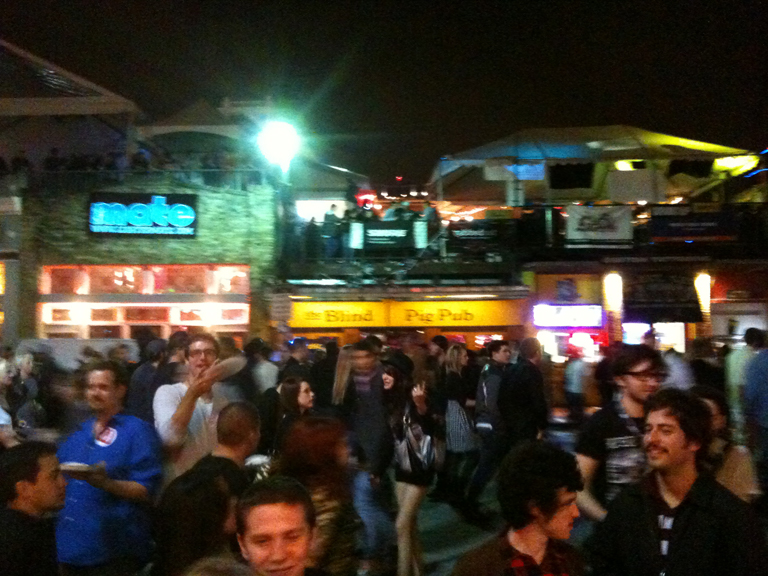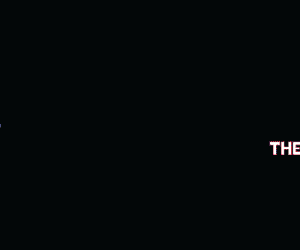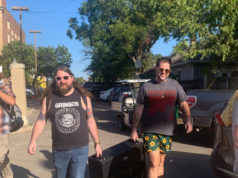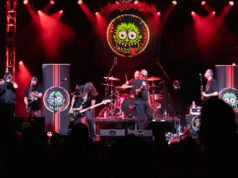I spent the past six SXSW festivals running up and down 6th Street trying to catch every band I possibly could. Not this year, though. I saw plenty of good shows, like Band of Skulls, Imaad Wasif, Low Anthem, and Miike Snow, but I moved around at a walk. The reality is that many of the hundreds of bands whose short sets I once was so hot to experience no longer exist. I can’t even remember a lot of their names, and while astounding numbers of people all over the world are making great music, those songs that stick forever are getting harder to find. Or maybe I’m just getting older and crankier.

Musicians have done pop in so many ways, it’s hard to make anything that sounds new. Not only is it progressively more difficult to make an indelible mark on listeners, but the recording industry also has gone kaput, which means that even wildy popular bands aren’t necessarily rolling in the loot. Most bands can’t afford much studio time so they spend fewer hours laboring over the details of what could be stellar songs. Even if they did, though, the resulting MP3 track would be a hard sell. People are reluctant to pay for what they can get for free. We can thank technology, which has enabled file-swapping and music-streaming and changed the very mind-set through which people conceive of and relate to music. Nowhere is that metamorphosis more visible than at SXSW.
If I didn’t feel the need to describe every single thing I saw, then, as a writer, why was I there? At a panel about music journalism in the post-print era, I listened to Chris Weingarten, the music critic who reviewed thousands of CDs last year via Twitter. He planned to Tweet reviews of 100 shows during SXSW in the same short format. And why? Can’t his followers just Google any band and make up their own minds? Search engines and MySpace make it easy to take a quick listen instead of relying on a stranger’s wordy opinion. And as for the “I need someone to sift through the mountain of music for me” argument, well, it’s no longer valid. The search is half the fun, which is why seemingly millions of punks, hippies, goths, rappers, emos, hipsters, and Fort Worthians descend on Austin every March and just hop from show to show. Not everyone is trying to be the first to discover the newest, most obscure flavor. A lot of people are looking for music that resonates with them on a deeply personal level.
Considering what a foolish venture attempting to make money in The Biz currently is, I find it downright astounding how many people are out there making good music –– more and more each year. Sure, assorted computer programs are allowing musicians to produce and distribute their work more effortlessly than ever, but that’s only part of the answer. Perhaps wide-eyed musos are adapting to life in the social networking era. Despite the ease of collecting hundreds of virtual friends on Facebook and sharing daily activities on Twitter, genuine human bonding is not getting any easier. Communicating who one really is can’t be done in 140 characters or a photo, and I think a lot of people –– musicians or otherwise –– feel misunderstood. Perhaps so many folks are still living and dying to make music because it’s a way to share their unique selves.
Certain mystics claim that a human being’s highest purpose is to fully express him- or herself, and as Centro-matic’s Will Johnson recently told me, “Music is the highest form of communication I can find among humans.”
So what am I here to communicate? I wanted to spend SXSW figuring out why I am part of this chaotic, fleeting, sometimes disingenuous industry. I guess I found that I can serve a purpose at least to myself, if not a few others along the way. No need to ruin my new Nike soles describing every band I witnessed –– I did see Muse and Metric from about five feet away –– when I have the privilege of describing who some of these musicians really are and what in the world drives them to make music. Having the opportunity to work as a journalist in Fort Worth, I have lucked into some insight about Stella Rose’s Stephen Beatty’s killer guitar solos, the pure vocals of Matt Mooty in The Burning Hotels’ “Boy or a Girl,” and Robert Gomez’ new material inspired by Severance, Robert Olen Butler’s book about decapitation.
While it’s great to run around Austin and check out what music the rest of the world has to offer, being down there always make me happy to live up here. Lots of creative folks, like the songstress Jessie Frye and the clever Chris Johnson of Telegraph Canyon, are here and using their ideas, drive, and work ethic to make the music happen. Just like they did at South-by. The ones who take the time to tighten their music and put some serious thought into what they are saying really do stand out, and we are lucky to have them.
It’s too bad SXSW officials mostly overlooked Fort Worth –– again. Maybe the Fort needs a new standard of tightness and professionalism. The content is here, so its execution should mean there’s little chance it will be ignored. Eventually, the Fort will be better represented in the collective worldwide consciousness of music fans. As we all know, this town is a gem because of the mellow, genuine people who live here. And that translates well into the music community, where, against all odds, the future is still very bright.











